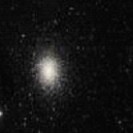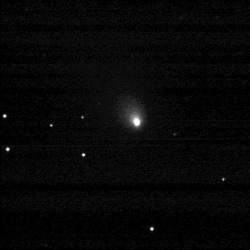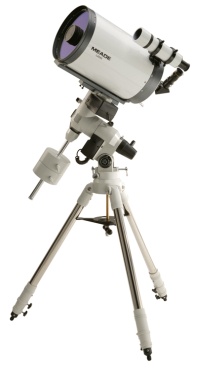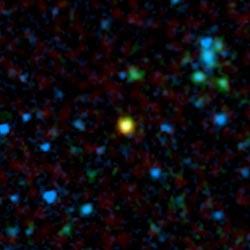

"Your Eminence, I'm fluent in Latin, German and Italian. My French is passable. My Greek is a little weak and I've forgotten most of the smattering of Hebrew the seminary inflicted on me." Father Scheiner knew he shouldn't be taking that tone with a prince of the church, but it was just so frustrating. So much knowledge locked away behind the wall of up-timer English. "And now I've got to learn English? Why can't you people speak a reasonable language? Or, at least write in a reasonable language?"
"I'm sorry, Father Scheiner," Cardinal Lawrence Mazzare replied. "If we'd known we were coming, we'd have been better prepared."
Christopher Scheiner noted the gentle reproof in the cardinal's tone, and the reminder that he probably failed to realize he had given. Cardinal Mazzare wasn't just a prince of the church. He was a prince of the church who had been put in his position by the hand of God. Yet none of that really penetrated Father Scheiner's frustration with the situation. He picked up a book and flipped through it. "This is supposed to be a basic astronomy text for the beginning student. I can't even understand most of these pictures. What is this Hertzsprung-Russell Diagram supposed to tell me? I can guess that luminosity, from the Latin lumen, is brightness, but what is a spectral class?"
"Don't ask me. There's nine planets and a bunch of stars and that's about all I know."

"Nine planets?" Scheiner shook his head in dismay. "What can you tell me about the extra three?"
"The seventh one is Uranus. The name causes some unfunny jokes you'll appreciate when your English is better. The others are Neptune and Pluto."
"Uranus. That's the Latin form of Ouranos, the Greek god of the sky. It's a reasonable name for a planet, I suppose." Scheiner paused. "But how do they know it's there? Diligent men have been looking at the sky for millennia, how was it missed?"
"Father, I can't answer that question," Mazzare said. "However, in the next week or so Johnnie Farrell will be coming from Grantville. He's been an amateur astronomer for years and has a really good, up-time telescope. Hopefully, he can answer all your questions."
"Father Scheiner, there's an up-time man with a large box who says he's supposed to see you."
"Thank you, Herr Reichter. Please ask him to come in."
A small, rather stout man in his early sixties walked into the room. "Hi, there. You must be Father Scheiner. I'm Johnnie Farrell and this here's my telescope. I'll be happy to tell you what I can about astronomy."
"I'm pleased to meet you, Herr Farrell." Scheiner walked over and shook Farrell's hand. "I have so many questions and my English is not good enough to get them from the books."
"Well, I've got plenty of books and magazines to show you." Farrell beamed. "I can explain a lot that's in them and probably figure out the rest since I've been reading astronomy books for most of my life. I think I know something about it.

"But first let me show you an indispensable tool for any astronomer." Farrell lifted the box onto a table, snapped several clasps, and opened the lid. "This is a Schmidt-Cassegrain eight-inch reflector with an equatorial mount and go-to. Just point this baby at three stars and it'll show you thirty-thousand other celestial objects just by pressing a few buttons."
"I'm sorry, Herr Farrell. I didn't understand any of that."
Farrell sighed. "I guess I'll have to start with the basics. This is a reflector telescope. It uses mirrors to collect the light."
"An astronomer in Rome, Father Zucchi, devised a telescope that uses a mirror, but I have not seen one before. It does look rather strange. I think of telescopes as being long and thin, not short and wide."
Farrell stroked his telescope fondly. "Okay, let me explain how this one works . . ."
Father Scheiner listened to the explanation and found himself growing more confused. Mirrors, computers, the go-to . . . it all required more explanation "I think I understand how a telescope uses mirrors but it does not look like what I think of a telescope looks like."
"Okay, Father, let's discuss telescopes. There's two main types . . ."
More explanation, until he felt his head must be spinning. Light waves then photons, spherical aberration. "Just a minute, Herr Farrell, wave lengths of light? Light is a wave? And what is a photon?"
"Look, we'll get into the nature of light in a little while. Let's not get sidetracked. I'm still explaining telescopes." Farrell continued with more unfamiliar terms and explanations.
Scheiner could feel himself moving from puzzlement to frustration. "I thought you said that light came in waves. Now you say light is particles?"
"Father, light's complicated. Sometimes it acts as a particle, sometimes it's a wave. I don't really understand how it works. A guy named Maxwell described light in four equations. Trouble is, those equations are calculus, which I don't know. Let's just stick with telescopes. I know telescopes. Anyway, what we got here is a Schmidt-Cassegrain, which is a different type of reflector. When the light enters the telescope, it goes through a corrector lens which fixes the spherical aberration."
Scheiner interrupted. "So the light goes into this lens here . . ."
Farrell seemed to be getting as frustrated as Scheiner was. "Hey, Father, don't touch the lens. This telescope is the only one of its kind in the world and it's irreplaceable. It'll take probably decades before technology is up to duplicating it. We'll have to baby this 'scope, which means no touching the glass. I'll let you use it, but I'm going to supervise you all the time."
"If we use this tonight, can you show me Uranus?"
"I'll just drop my drawers and show it to you now." Farrell blushed. "Oops, sorry, Father. I shouldn't be so crude."
Scheiner couldn't hide the grin. "I now understand something that Cardinal Mazzare told me recently. I really want to see the planet Uranus. Can you show it to me tonight?"

"Sorry, Father, but I can't. I don't know where it is and the go-to doesn't either."
This was even more confusing. "I thought you said that one could just press some buttons and the telescope would point to several thousand different objects."
Farrell blushed again. "Sure, sure, fixed objects, no problem. You want to look at stars, galaxies, nebulas, things that don't move, the go-to can find 'em. But for moving stuff, like planets and comets, the go-to doesn't work. It needs to know what the time and date is for those and I can't tell it what the date is. Yeah, I know that it's May 15, 1635, but that doesn't help. The go-to won't use any dates before January 1, 1990."
Scheiner pondered for a moment. "Can you give me any data on Uranus's orbit? Perhaps we can calculate its position."
"I've got lots of old copies of Astronomy and Sky & Telescope magazines, I'm sure they'll give the right ascension and declination of Uranus for various dates. But those dates will be almost four hundred years in the future. What good will that do?"
More unfamiliar terms. Scheiner did his best not to snap his question. "What, pray tell, is right ascension and declination? Or rather, since I can guess they're parts of a system of positioning, what is the basis for the system?"
"They're celestial longitude and latitude, with celestial north being near Polaris and the prime meridian in Aries. I have the details in my books. But I don't know how to calculate orbits. I don't know the math."
"Fortunately, Herr Farrell, I do know the . . . math. I have the Rudolphine Tables and the rest of Kepler's work on planetary orbits. If you can get me the data, I can do the calculations." Feeling that he was back on familiar ground, Scheiner moved to a chair and waved Farrell to another. "Tell me, what do you know about astronomy? Not the telescope or the go-to. Real astronomy."
Farrell sat and shook his head. "I'm not a real astronomer, just a guy who enjoys looking at stars. I've read some books and magazines, but I'm not any kind of scientist. You've just shown me that I know less about light than I thought I did. I know the words but I don't really know what the words mean. You're the hot-shot astronomer and scientific advisor to the cardinal. History will remember you as an astronomer. History won't remember me at all."
"Herr Farrell, why do you look at stars if they do not tell you anything?"
"But they do tell me things. They tell me the universe is immense and beautiful and that God created it."
"You remind me that I am not only an astronomer but also a priest. You are right, that is a good reason for looking at the stars. My friend, let us learn about God's universe together." Scheiner rose and extended his hand. He was pleased when Farrell extended his own.
"What a beautiful night for observing." Father Scheiner had just reached the observation position they'd been using.
"Yes, it's a gorgeous night. Nice and warm and not a cloud in the sky."

Scheiner smiled. "Herr Farrell, in the past month you have shown me many interesting things. Now I would like to show you something. Please position the telescope at the right ascension and declination I have written on this card."
Farrell made the adjustments and waited for Scheiner to take a look. Instead, Father Scheiner stood aside and motioned for him to look first. He looked through the eyepiece. "I see a disk among all the pinpoints of light."
"Congratulations, Herr Farrell. You are the first person to see the planet Uranus. Perhaps history will remember you as the discoverer of the seventh planet."